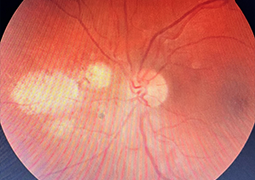Aim: to investigate the dynamics of the T-cell immune response in rabbits with experimental autoimmune uveitis (EAU) of varying severity.
Materials and Methods: The experiment involved two groups of Chinchilla rabbits (15 rabbits in each group). The model of EAU was created. The clinical picture of intraocular inflammation of varying severity was assessed. The determination of the level of white blood cells (WBC), lymphocytes (Lymphs), CD3+, CD4+, CD8+, and CD16+ in the blood of rabbits was conducted.
Results: Group I – moderate and severe uveitis, Group II – uveitis of mild severity. WBC, Lymphs, CD3+, CD4+, CD16+ were elevated and statistically significant in both groups of animals compared to control parameters on all days of the experiment (3, 7, 10, 14, 21 days) (p < 0.001). CD8+ level had a significantly lower count than the control one (p < 0.001). When comparing the two groups, the immune response was more active in Group I, and the number of immune cells did not return to normal by the end of the experiment.
Conclusion: In the case of EAU, the immune response is characterized by the activation of the T-cell immune system, with the intensity of this response depending on the severity of the clinical presentation of uveitis. Various degrees of clinical severity in EAU were obtained using an experimental model employed in our study. A rapid response of the immune system helps to establish a diagnosis and predict the severity of autoimmune uveitis.

